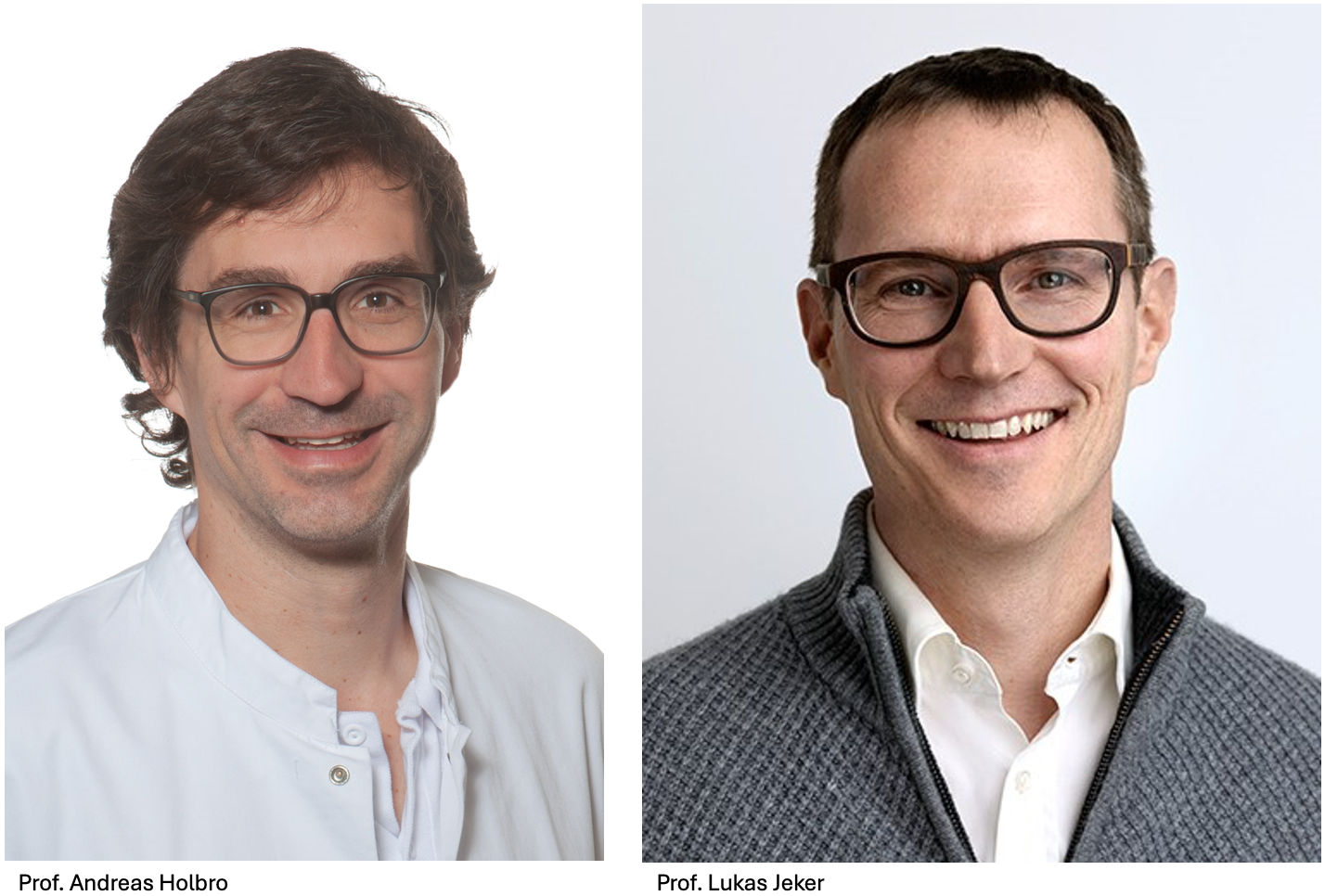Acute myeloid leukemia – Prof. Andreas Holbro (USB) and Prof. Lukas Jeker (UNIBAS)
Improving the efficiency of immunotherapy for acute myeloid leukemia

Acute myeloid leukemia (AML) is a cancer that starts in the blood-forming cells of the blood marrow, and which results in the rapid death of the patient if left untreated. Formerly, treatment was based on chemotherapy followed by a hematopoietic stem cell transplantation. More recently, immunotherapy, which programs killer T-cells to attack the cancer cells, has been attempted. Unfortunately, even after intensive and aggressive treatments, a large portion of patients still relapse, and immunotherapy tends to attack healthy as well as leukemic cells. New, innovative treatments and approaches for AML are an urgent unmet clinical need.
To date, the search for AML-specific targets for targeting by cancer-killing CAR-T immune cells, has been unsuccessful. The scientists in this project are now trying a different approach by reversing the therapeutic concept. Their primary goal is now a complete eradication of the disease, including the leukemic stem cells (LSC), while protecting healthy hematopoietic stem cells from the immunotherapeutic attack. This should prevent relapse and overall improve patient outcome.
The TANDEM team, consisting of Prof. Jeker and Prof. Holbro, will investigate a potential “cloaking mechanism” that can be used to shield healthy hematopoietic stem cells from the agents that are used to kill the cancer cells. To do this, the scientists need a cell marker (cell surface protein) that is present on both the healthy and the cancer cells, and which they can modify genetically on the hematopoietic stem cells taken from the patient. The protected hematopoietic stem cells will then be re-introduced after AML therapy to regenerate the bone marrow, providing the altered protein does not prevent the cells from functioning normally. The AML-directed immunotherapy will be introduced into the patient and will only recognize the targeted marker on the cancer cells, since the healthy cells carry an altered or mutated marker. This could favor recovery, prevent relapse and improve efficacy of AML treatment.

